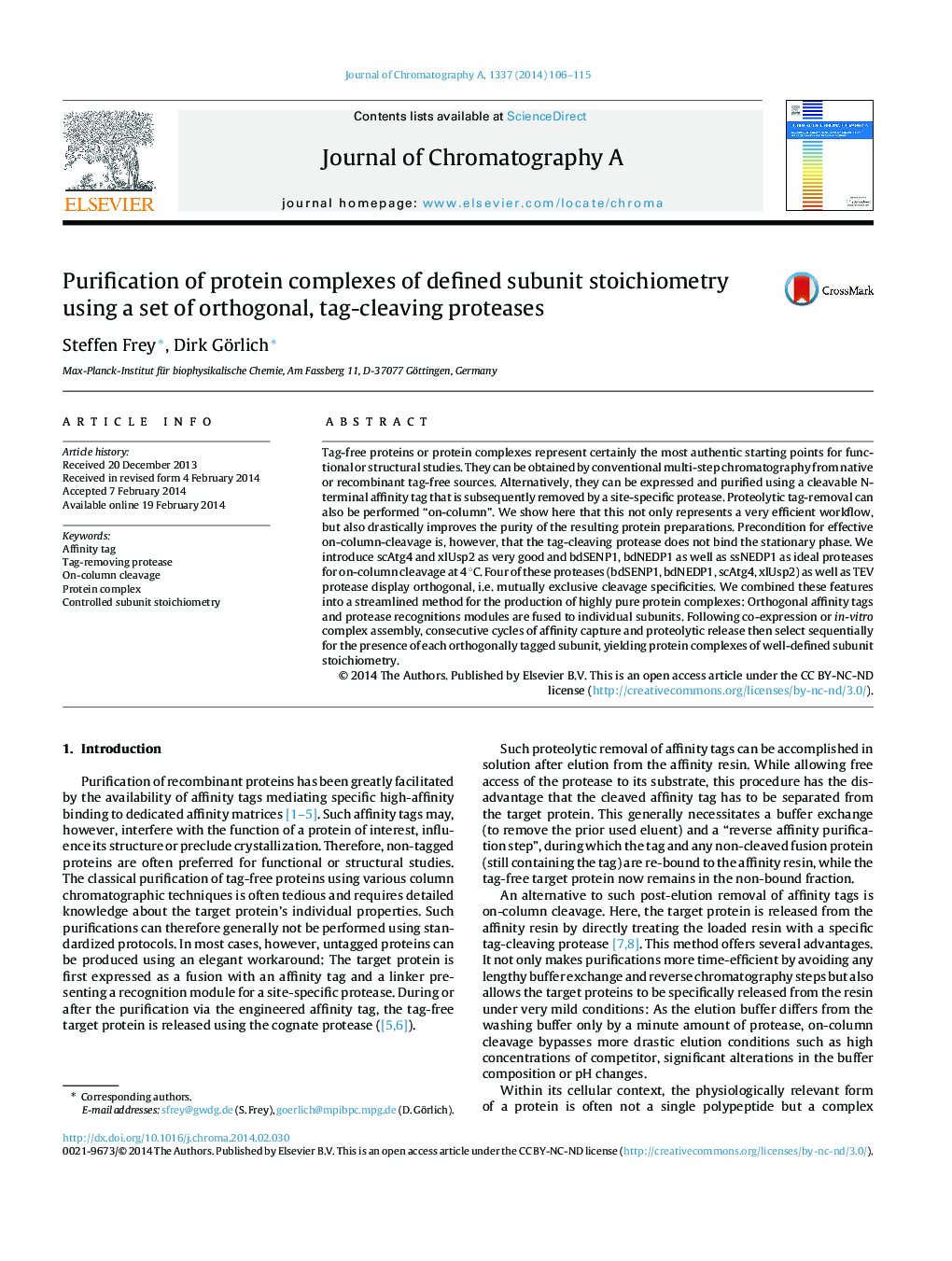| Article ID | Journal | Published Year | Pages | File Type |
|---|---|---|---|---|
| 7613547 | Journal of Chromatography A | 2014 | 10 Pages |
Abstract
Tag-free proteins or protein complexes represent certainly the most authentic starting points for functional or structural studies. They can be obtained by conventional multi-step chromatography from native or recombinant tag-free sources. Alternatively, they can be expressed and purified using a cleavable N-terminal affinity tag that is subsequently removed by a site-specific protease. Proteolytic tag-removal can also be performed “on-column”. We show here that this not only represents a very efficient workflow, but also drastically improves the purity of the resulting protein preparations. Precondition for effective on-column-cleavage is, however, that the tag-cleaving protease does not bind the stationary phase. We introduce scAtg4 and xlUsp2 as very good and bdSENP1, bdNEDP1 as well as ssNEDP1 as ideal proteases for on-column cleavage at 4 °C. Four of these proteases (bdSENP1, bdNEDP1, scAtg4, xlUsp2) as well as TEV protease display orthogonal, i.e. mutually exclusive cleavage specificities. We combined these features into a streamlined method for the production of highly pure protein complexes: Orthogonal affinity tags and protease recognitions modules are fused to individual subunits. Following co-expression or in-vitro complex assembly, consecutive cycles of affinity capture and proteolytic release then select sequentially for the presence of each orthogonally tagged subunit, yielding protein complexes of well-defined subunit stoichiometry.
Keywords
Related Topics
Physical Sciences and Engineering
Chemistry
Analytical Chemistry
Authors
Steffen Frey, Dirk Görlich,
